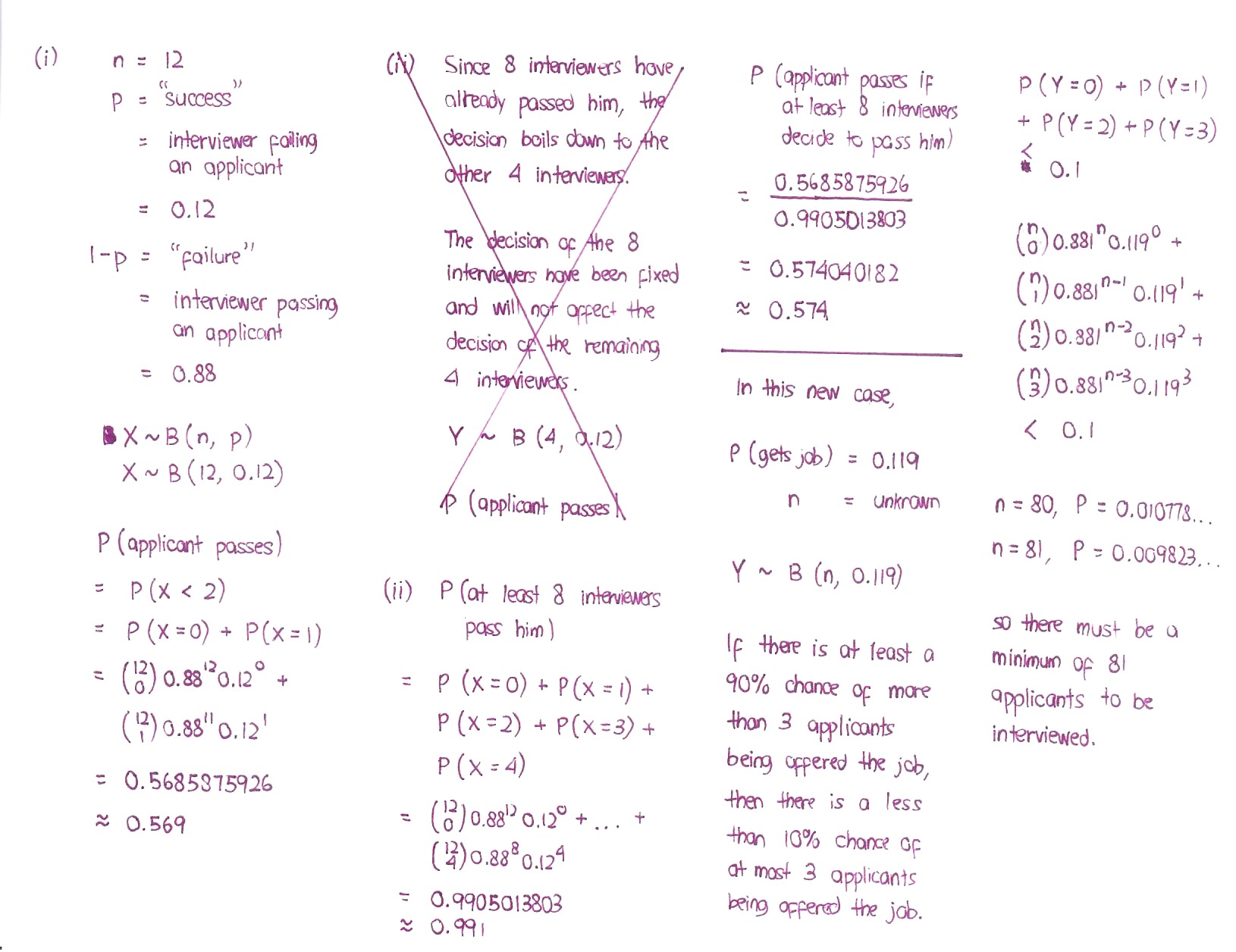Eric Nicholas K's answer to Xiang Ning's Junior College 2 H2 Maths Singapore question.
done
{{ upvoteCount }} Upvotes
clear
{{ downvoteCount * -1 }} Downvotes
Not 100% sure. As for the final answer, I relied on my manual calculator as I do not have any physical graphing calculator. For the final part, I assume that the 0.119 already takes into account the first interview (so we do not need to multiply it by another number); that is, 0.119 is the probability of getting the job, rather than the probability of passing the second interview alone.
Date Posted:
4 years ago
I see a solution for the 1st part of the question like this.
P(pass) = P(X>/=11) = 0.569
I dont understand why is it P(X>/=11)
P(pass) = P(X>/=11) = 0.569
I dont understand why is it P(X>/=11)
Oh, their success is defined differently.
My success is interviewer failing the candidate.
The given method’s success is interviewer passing the candidate.
Either way you will get the same answer.
For the candidate to pass the first interview, there cannot be two or more interviewers failing the candidate. This translates to 11 or 12 candidates passing the candidate, which is why they put P (X >= 11).
My success is interviewer failing the candidate.
The given method’s success is interviewer passing the candidate.
Either way you will get the same answer.
For the candidate to pass the first interview, there cannot be two or more interviewers failing the candidate. This translates to 11 or 12 candidates passing the candidate, which is why they put P (X >= 11).
Oh okay thanks



